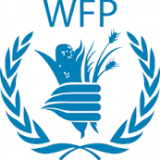The United Nations World Food Programme is the world’s largest humanitarian agency fighting hunger worldwide. The mission of WFP is to help the world achieve Zero Hunger in our lifetimes. Every day, WFP works worldwide to ensure that no child goes to bed hungry and that the poorest and most vulnerable, particularly women and children, can access the nutritious food they need.
Coordinator, Protection from Sexual Exploitation & Abuse (PSEA)
Job Code: 107723
Location: Abuja
Job Summary
- WFP is supporting the UN Common System in Nigeria within the Resident Coordinator/Humanitarian Coordinator (RC/HC) Office to seek candidates of the highest integrity and professionalism who share our humanitarian principles.
- Selection of staff is made on a competitive basis, and we are committed to promoting diversity and gender balance.
- While WFP will issue the related contract, the selected Candidate will report to the RC/HC Office and the position will be based in the same office.
Context
- The in-Country PSEA Network in Nigeria was established under the guidance of the HCT in 2017, comprising the UN, INGOs and has recently been extended to the national NGOs. To date, the In-Country PSEA Network has developed key guidance document such as PSEA Standard Operational Procedures (SOPs); Inter-Agency SEA Referral Pathway; Community Based Complaints Mechanisms (CBCM) training; Provision of referrals to survivors to Victim Assistance response services; Training of PSEA focal points.
- Working closely with the PSEA Network Co-Chairs, the PSEA Network comprises of Agency/Organisation Focal Points (FPs) from UN, INGO, NGO and through the PSEA Coordinator, reports directly to the RC/HC. The humanitarian actors have yet varying capacities and experience in terms of compliance with PSEA standards and the oversight of PSEA minimum standards remains challenging.
- The PSEA Coordinator will be contracted by the World Food Programme and will report directly to the RC/HC. Under the overall supervision of the Resident Coordinator/Humanitarian Coordinator (RC/HC), the candidate will be responsible for overseeing and supporting the collective Protection from Sexual Exploitation and Abuse (PSEA) activities of organisations in Nigeria.
- H/she will be responsible for supporting and tracking progress of the implementation of the prevention of sexual exploitation & abuse (PSEA) network Action Plan and overseeing and supporting the collective PSEA activities of organizations in Nigeria, and to promote the United Nations’ (UN) Zero Tolerance Policy, key PSEA global commitments, including the Secretary-General’s Bulletin on Special Measures for Protection from Sexual Exploitation and Sexual Abuse (ST/SGB/2003/13), the Statement of Commitment on Eliminating Sexual Exploitation and Abuse by UN and Non-UN Personnel (2006), the IASC Statement on PSEA (2015), and the PSEA Minimum Operating Standards.
Core Functions/ Responsibilities
Establish the PSEA in-country programme:
- Support senior leadership in developing and implementing an in-country PSEA strategy.
- Support senior leadership to establish an inter-agency PSEA Network for technical coordination on PSEA, consisting of membership from UN agencies, international, national and local organisations operating in Nigeria.
- Support the Network to carry out a joint PSEA risk assessment in Nigeria to inform senior leadership on strategic decision-making.
- Support senior leadership in developing and implementing PSEA Network ToRs and a Work Plan, based on the risk assessment.
Oversee the PSEA Network:
- Oversee and support the inter-agency PSEA Network in coordination with the Network co-chairs [to be determined] in the fulfilment of its responsibilities under the PSEA Network TORs and Work Plan.
- Represent the PSEA Network in the respective coordination bodies and leadership forums in Nigeria.
- When the PSEA coordinator is unavailable the Network will be overseen, supported and represented by the organisations identified as co-chairs.
Strengthen PSEA Within Organizations:
- Support PSEA mainstreaming during planning, policy development and programming, through participation in the Inter-Agency-Coordination Groups.
- Establish a Code of Conduct and Whistleblowing Policy that clearly prohibits SEA, obliges reporting of such acts, enforces these clauses when breached, provides meaningful protection to whistle-blowers, and encourages safe reporting.
- Implement SEA prevention, risk mitigation, response measures during planning, policy and project development, and programming in each department and in each technical sector.
- Train staff on PSEA and the Code of Conduct, including appropriate conduct for aid workers and how to submit and receive complaints under internal and inter-agency reporting systems.
- Ensure that internal HR practices are in place in human resource departments that guard against hiring persons who have a (pending) allegation of misconduct against them, and include PSEA content in staff induction, contracts and subcontracting, and job evaluation criteria.
- Insert and enforce PSEA clauses in partnership contracts that clarify reporting and investigation responsibilities.
- Establish and/or strengthen internal investigation protocols, including clear case handling responsibilities in-country, capacitated investigations staff, and ability to enact disciplinary measures where Sea is substantiated. Where Network members have dedicated investigation body in Headquarters, strengthen referrals to the dedicated investigation unit.
- Establish and/or strengthen safe SEA-specific procedures for internal complaints and feedback mechanisms (CFMs) and referrals to survivor assistance, informed by good practice and community consultations.
Engage Stakeholders:
Community Engagement:
- All activities to engage with the affected populations should be planned and implemented in close coordination with Accountability to Affected Populations (AAP) and/or Communicating with Communities (CwC) groups/actors in Nigeria.
- As part of broader community engagement activities, support the Network to learn of community perspectives on behaviour of aid workers, and preference in dispute resolution, discussing sexual matters, and receiving and sharing sensitive information to inform the Network’s outreach and activities.
- Support the Network to develop a collective communication strategy to raise awareness on key PSEA messages, including the rights of affected populations, the fact that assistance and services are never conditioned on sexual favours, and how to submit sensitive complaints.
- Ensure that the implementation of the PSEA Network Work Plan is informed by community participation, contextually and culturally appropriate, based on the community’s needs.
Engage Stakeholders:
Sector Coordination:
- Engage and coordinate with the sectors in Nigeria to ensure PSEA mainstreaming during planning, policy development and programming.
- Represent the PSEA Network and update on relevant PSEA activities during sector and inter-sector meetings.
- Report back to the PSEA Network on sector developments and updates that may impact the PSEA Work Plan implementation.
- Work closely with the GBV sub-sector, Inter Sector Working Group, the Humanitarian Country Team (HCT), member agencies and implementing partners to ensure coordinated referral mechanisms for victim services and implementation of General Assembly strategy on victim assistance. Develop and facilitate PSEA training modules for humanitarian staff, including UN, NGOs (national and international), International Organizations (IOs), implementing partners, CBOs and, as appropriate, community members on appropriate conduct for aid workers, international standards on PSEA, roles and responsibilities, and how to submit and receive complaints.
- Support and maintain the nomination of PSEA focal points from humanitarian assistance agencies and implementing partners by organizing monthly meetings, acting as Secretariat to the PSEA network, enhancing communication and information sharing among FPs in the network and with existing coordination and complaint/feedback mechanisms.
Engage Stakeholders
- Ensure that the identities of PSEA focal points and their contact details are disseminated to the humanitarian community, key stakeholders in their areas of operations, and to beneficiaries/affected populations.
- Support the PSEA Network to hold inter-agency trainings on good practices in SEA complaint intake and referral for PSEA Focal Points, GBV and Child Protection actors, and all actors staffing CFM channels, so that all actors who may receive SEA complaints know how to recognise SEA and where to send allegations in the joint CBCM.
- Support the Network to disseminate contact information of PSEA Focal Points amongst staff and the affected population, so that the entire aid community is aware and can reach out to the formal reporting mechanism for each Network member.
Complaint Review and Referral:
- Carry out independent complaint review and referral to the concerned organisation and provide appropriate follow-up after the referral, in accordance with the SOPs.
Monitoring and Evaluation:
- Keep anonymized records of allegations received directly by Network members and other actors in-country to capture SEA trends and support stakeholders to adjust programs.
Promote Information sharing:
Proactive Outreach to External Partners:
- Proactively reach out to relevant entities that are not participating in the PSEA Network or the joint CBCM to ensure that they are aware of the PSEA activities, and to foster linkages and information-sharing.
Required Qualifications and Experience
Background:
- Technical expertise in at least one of the following areas:
- Protection from Sexual Exploitation and Abuse (PSEA)
- Accountability to Affected Populations (AAP)
- Protection
- Human Rights
- Child Protection
- Gender-based violence/Victim assistance
- Staff misconduct and discipline
- Monitoring, Evaluation, Accountability, and Learning (MEAL)
Professional Experience:
- Minimum P4 Level (equivalent of minimum 7 years of work experience) and advanced University Degree.
- Field experience in humanitarian and development settings.
- Understanding of the international development and humanitarian architecture.
- Familiarity with the UN system and global coordination structures (e.g. IASC).
Required Qualifications and Experience
Professional Experience:
- Proven ability to implement an Action Plan.
- Experience in developing and facilitating training and capacity-building activities is an advantage.
- Familiarity with data protection and confidentiality measures is an advantage.
Skills:
- Coordination (experience in an inter-agency coordination role is an advantage)
- Professionalism (proven integrity, objectivity, and professional competence)
- Communication, facilitation, and inter-personal skills
- Ability to work with different stakeholders and build consensus
- Advocacy across a wide variety of actors
- Leadership (ability to lead technical network)
- Leveraging (ability to engage at senior leadership level and secure buy-in)
- Problem-solving (ability to know what needs to be done and identify the resources to do it)
Competencies:
Language:
- Fluency in both oral and written communication in English Language. Knowledge of a second UN Language is desirable.
Behavioural Requirements:
- Sensitivity to cultural diversity, discrimination, and gender issues
- Ability to interact in a sensitive manner with survivors
- Ability to work in a stressful environment
- Ability to delegate
Method of Application
Note
- Female applicants and qualified applicants from developing countries are especially encouraged to apply
- The UN has zero tolerance for discrimination and does not discriminate on the basis of HIV/AIDS status.
More Information
- Job City Abuja





